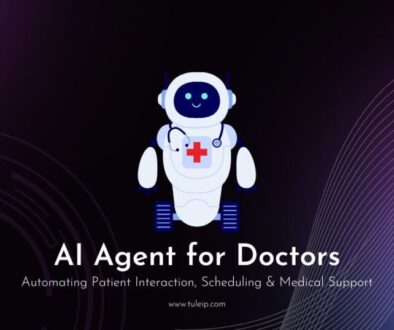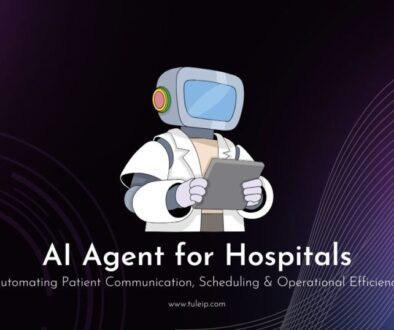Model Context Protocol (MCP): Revolutionizing AI Integration
In the rapidly evolving landscape of artificial intelligence (AI), the Model Context Protocol (MCP) has emerged as a pivotal standard, revolutionizing how AI systems interact with external data sources and tools. Introduced by Anthropic in November 2024, MCP offers a standardized framework that enhances the capabilities of AI models by providing seamless access to diverse datasets and services.
What is the Model Context Protocol (MCP)?
The Model Context Protocol (MCP) is an open standard designed to facilitate secure, two-way connections between AI models and external data repositories, business tools, and development environments. By implementing MCP, developers can create AI systems that access and utilize real-time data, leading to more accurate and contextually relevant responses. This protocol addresses the challenges posed by fragmented integrations, offering a unified approach to connecting AI assistants with the information they require.
Key Components of MCP
MCP operates on a client-server architecture comprising several essential components:
MCP Hosts: AI applications, such as chat clients or integrated development environments (IDEs), that request access to data via MCP.
MCP Clients: Interfaces maintaining individual connections with MCP servers to facilitate communication.
MCP Servers: Programs exposing specific capabilities through the standardized protocol, providing data and functionalities to MCP clients.
Local Data Sources: Databases, files, and services residing on local machines containing pertinent information.
Remote Services: External systems accessible over the internet (e.g., APIs) to which MCP servers can connect.
This modular structure enables straightforward and scalable integration between AI applications and various data sources and tools.
Benefits of Using MCP
Implementing MCP offers several advantages:
Standardization: Provides a universal method for connecting AI systems with external data sources, reducing the need for custom integrations.
Enhanced Interoperability: Facilitates seamless communication between diverse systems, promoting a more cohesive AI ecosystem.
Improved Efficiency: Streamlines the development process by eliminating the complexities associated with fragmented integrations.
Security: Emphasizes secure connections, ensuring that data exchanges between AI models and external sources are protected.
By adopting MCP, organizations can build AI systems that are more robust, versatile, and capable of delivering contextually accurate outputs.
Frequently Asked Questions (FAQs)
Q1: How does MCP differ from traditional APIs?
A1: Traditional APIs often require custom integration for each data source, leading to fragmented and maintenance-intensive systems. MCP offers a standardized protocol, allowing AI models to connect with multiple data sources through a single integration, simplifying the development process.
Q2: Is MCP limited to specific AI models?
A2: No, MCP is designed as an open standard compatible with various AI models and applications, providing flexibility across different platforms and use cases.
Q3: What are the security considerations associated with MCP?
A3: While MCP aims to provide secure connections between AI models and external data sources, it is essential to implement appropriate security measures during each phase of the MCP server lifecycle—creation, operation, and update—to mitigate potential risks.
Q4: How can developers get started with MCP?
A4: Developers can begin by exploring the MCP specification and utilizing available Software Development Kits (SDKs) provided in various programming languages to build MCP clients and servers.
The Future of MCP
The adoption of MCP is poised to grow as more organizations recognize the need for standardized, secure, and efficient methods to connect AI systems with external data sources. Future developments may focus on expanding the protocol’s capabilities, enhancing security features, and fostering a broader ecosystem of compatible tools and services. As the AI landscape continues to evolve, MCP stands to play a critical role in enabling more integrated and context-aware AI applications.
Why Should You Use MCP?
Adopting MCP offers several compelling benefits:
Simplified Integrations: Reduces the complexity and time required to connect AI models with various data sources.
Scalability: Facilitates the development of AI systems that can easily scale and adapt to new data sources and tools.
Enhanced AI Performance: Provides AI models with real-time, relevant context, leading to more accurate and useful outputs.
Future-Proofing: Aligns with emerging standards in AI development, ensuring compatibility with future technologies and practices.
Incorporating MCP into your AI development strategy can lead to more efficient, secure, and capable AI systems, positioning your organization at the forefront of AI innovation.
#ModelContextProtocol #MCP #ArtificialIntelligence #AIIntegration #DataInteroperability #AIStandards #TechInnovation #AIProtocols
AI interoperability
standardized AI protocols
external data integration
AI data sources
context-aware AI
AI system architecture
MCP components
AI development standards
secure AI connections
AI tool integration
Model Context Protocol
MCP
AI integration
AI protocols
AI data interoperability
AI external tools
standardizing AI interactions
AI context management
MCP benefits
future of MCP



